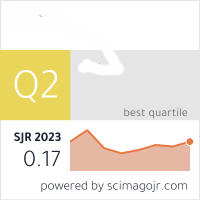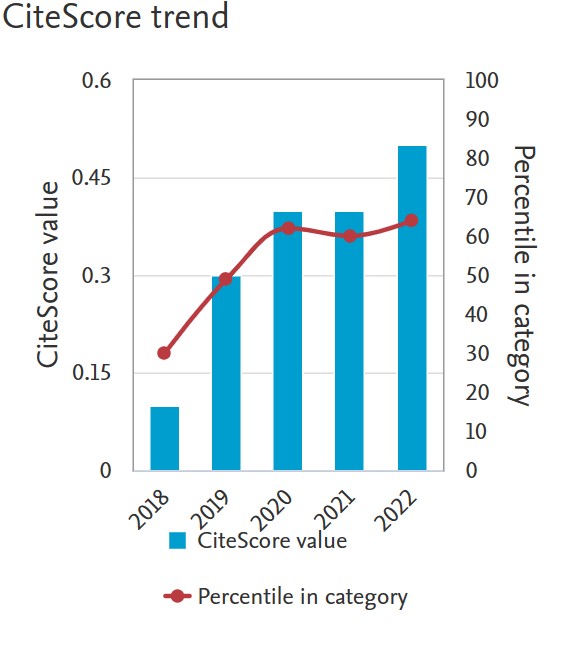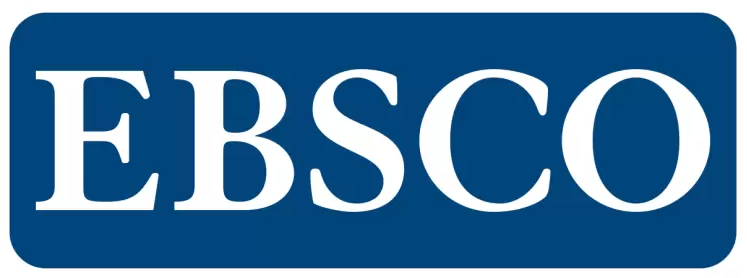Ancient medicine after Herophilus. Part 2. The natural philosophical foundations, theory and practice of the Methodic school doctors1
Keywords:
history of medicine, empirical doctors, rationalistic doctors, natural philosophyAbstract
This article attempts to reconstruct the main phases of the history of the Methodic school doctors. Representatives of this medical school, just like the empirical doctors, rejected the teleological principle of the human body and the possibility of extrapolating data obtained from anatomical dissections to clinical practice. They also rejected the Hippocratic principle of the etiology and individual character of diseases. In the author’s opinion, rejecting the study of the dead in the interest of learning about the living is related to the particularities of the “world map” of the Methodic doctors, the theoretical teaching basis of whom was natural philosophical atomism and whose clinical thinking was based on a symptomatic approach. The author of the article points out that we learned many concepts of the philosophy of atomism through the works of Aristotle as well. The atomistic world map helps make conclusions about the difference between a living and a dead body that are determined by the presence (or absence)of the movement of atoms. The Methodic doctors, guided by the world map based on atomistic natural philosophy, rejected the practical use of anatomic dissections and consequently, the necessity of conducting them. The Methodic doctors needed theories that would logically explain the phenomena they observed, while for rationalistic doctors theoretical medicine was a motive for experimental studies, whose results would become its foundation.
The productivity of natural philosophical trends in the history of medicine was determined by how much the methodology proposed by the doctors responded to the practical tasks of the art of healing. Critical understanding of the medical experience in ancient medical practice became possible thanks to the apodictic research method used by Galen. The integral theoretical-practical system he created became the historical boundary that separated Ancient Greek rational medicine from the rational medicine of the proto-scientific period (the 2th‒16th centuries).
Downloads
References
Balalykin D.A. Antichnaya meditsina posle Gerofila.
Chast’ 1 [Ancient medicine after Herophilus. Part 1].
Istoriya meditsiny [History of Medicine]. 2016; 3(1):
‒19. (in Russian)
Galen. Sochineniya [Works]. Vol. 3. Ed. D.A. Balalykin.
Moscow: Prakticheskaya meditsina, 2016. 560 p.
(in Russian)
Balalykin D.A. Issledovatel’skiy metod Galena. V kn.:
Galen. Sochineniya [Galen’s research method. In:
Galen. Compositions]. Vol. 3 Ed. D.A. Balalykin.
Moscow: Prakticheskaya meditsina, 2016. P. 5‒119.
(in Russian)
Nutton V. Ancient Medicine. London and New York:
Rutledge, 2013. 504 p.
Balalykin D.A., Shcheglov A.P., Shok N.P. Galen: vrach
i filosof [Galen: Physician and Philosopher]. Moscow:
Vest, 2014. 416 p. (in Russian)
Gaidenko P.P. Istoriya grecheskoy filosofii v ee svyazi s naukoy
[The history of Greek philosophy in its relation to science].
Moscow: Universitetskaya kniga, 2000. 320 p. (in Russian)
Asmus V.F. Antichnaya filosofiya [Ancient philosophy].
th ed. Moscow: Vysshaya shkola, 2009. 406 p.
(in Russian)
Sokolov V.V. Antichnaya filosofiya [Ancient philosophy].
Moscow: Znanie, 1958. 47 p. (in Russian)
Russell B. Istoriya zapadnoy filosofii [History of
Western philosophy]. Vol. 1. Moscow: Mif, 1993. 512 p.
(in Russian)
Jensen W.B. Four Centuries of atomic theory. An
Overview. Atoms in Chemistry. Department of
Chemistry. University of Cincinnati, 2010. Ch. 2.
P. 1–12.
Aristotle. Sochineniya v chetyrekh tomakh (Works
in 4 volumes). Vol. 3. Moscow: Mysl, 1981. 614 p.
(in Russian)
Lucretius. O prirode veshchey: v 2 t. [On the Nature
of Things: in 2 vols.]. Ed. F.A. Petrovskiy. Vol. 2.
Moscow: Izdatel’stvo AN SSSR, 1947. 718 p.
(in Russian)
Balalykin D.A. Meditsina Galena: traditsiya Gippokrata i
ratsional’nost’ antichnoy naturfilosofii [Galen’s medicine:
the Hippocratic tradition and rationality of ancient natural
philosophy]. V kn.: Galen. Sochineniya [In: Galen.
Works]. Vol. 2. Moscow: Prakticheskaya meditsina,
P. 5‒106. (in Russian)
Deleuze G. Difference and Repetition. Trans. P. Patton.
New York: Columbia University Press, 1994. 350 p.
Deleuze G. Lucrèce et le naturalisme. Les Études
philosophiques. Presses Universitaires de France. 1961;
: 19–29. (in French)
Deleuze G. The Logic of Sence. Trans. M. Lester and
C. Stivale. New York: Coiumbia University Press,
393 p.
Bennett M.J. Deleuze and Epicurean Philosophy:
Atomic Speed and Swerve Speed. Journal of French and
Francophone Philosophy. 2013; 2(XXI): 131–157.
Balalykin D.A., Shok N.P. Apodikticheskiy metod
v traditsii drevnegrecheskoy ratsional’noy meditsiny:
Gippokrat, Aristotel, Galen [The apodictic method in the
tradition of ancient Greek rational medicine: Hippocrates,
Aristotle, Galen]. Istoriya meditsiny [History of
Medicine]. 2016; 3(4): 462–478. (in Russian)
Polito R. Asclepiades of Bithynia and Heraclides
Ponticus: medical Platonism? In: Aristotle, Plato and
Pythagoreanism in the First Century BC: New Directions
for Philosophy. Ed. Malcolm Schofield. Cambridge
University Press, 2013. P. 118–138.
Todman D. Soranus of Ephesus (AD 98-138) and the
Methodist sect. Journal of Medical Biography. 2008;
(1): 51.
von Staden H. Herophilus: The Art of Medicine in Early
Alexandria. 666 p.
Longrigg J. Greek Rational Medicine: Philosophy and
Medicine from Alcmaeon to the Alexandrians. London:
Routledge, 1993. 296 p.
Galen. Sochineniya [Compositions]. Vol. 3. Ed.
D.A. Balalykin. Moscow: Prakticheskaya meditsina,
560 p. (in Russian)
Galen. O vskrytii ven, protiv posledovateley Erasistrata
[Bloodletting, against Erasistratus]. In: Galen.
Sochineniya [Galen. Works]. Ed. D.A. Balalykin. Vol. 1.
Moscow: Vest, 2014. P. 426–462. (in Russian)
Goldstein A. The Moral Psychiatry of Imperial Rome as
Practiced by Soranus of Ephesus. Psychiatric Quarterly.
; 43(1): 535–554.
Meyer-Steineg T., Sudhoff K. Istoriya meditsiny [History
of medicine]. Moscow: Gosudarstvennoe izdatel’stvo,
463 p. (in Russian)
Downloads
Published
Issue
Section
License
You are free to:
- Share — copy and redistribute the material in any medium or format for any purpose, even commercially.
- Adapt — remix, transform, and build upon the material for any purpose, even commercially.
- The licensor cannot revoke these freedoms as long as you follow the license terms.
Under the following terms:
- Attribution — You must give appropriate credit , provide a link to the license, and indicate if changes were made . You may do so in any reasonable manner, but not in any way that suggests the licensor endorses you or your use.
- No additional restrictions — You may not apply legal terms or technological measures that legally restrict others from doing anything the license permits.
Notices:
You do not have to comply with the license for elements of the material in the public domain or where your use is permitted by an applicable exception or limitation .
No warranties are given. The license may not give you all of the permissions necessary for your intended use. For example, other rights such as publicity, privacy, or moral rights may limit how you use the material.











